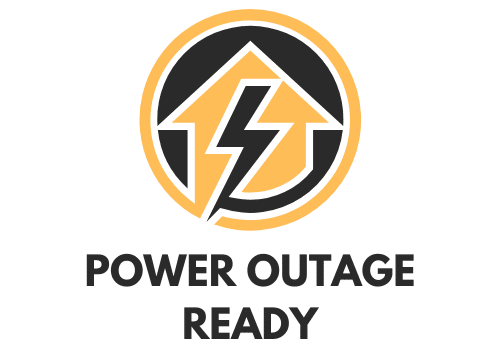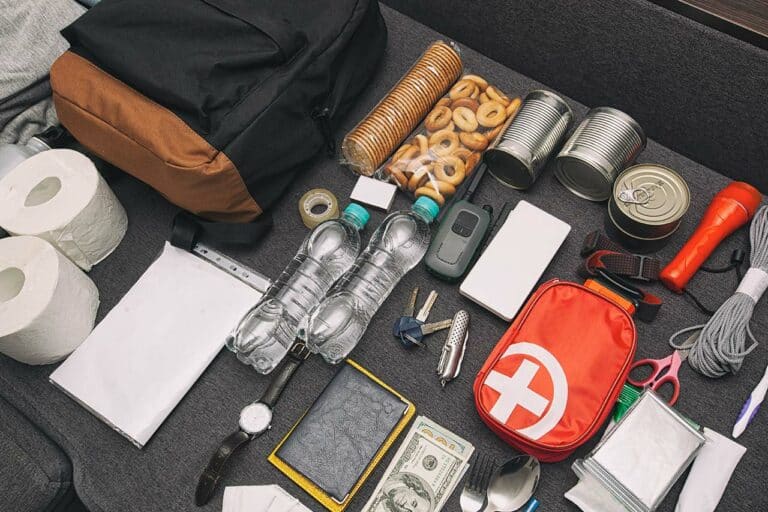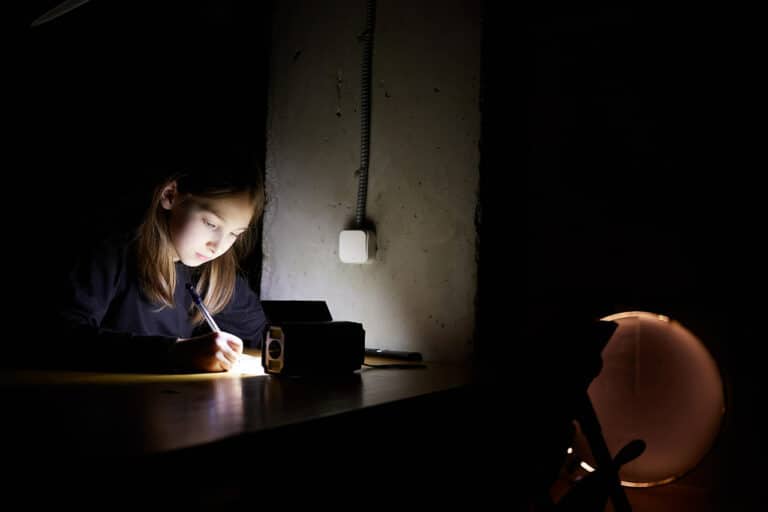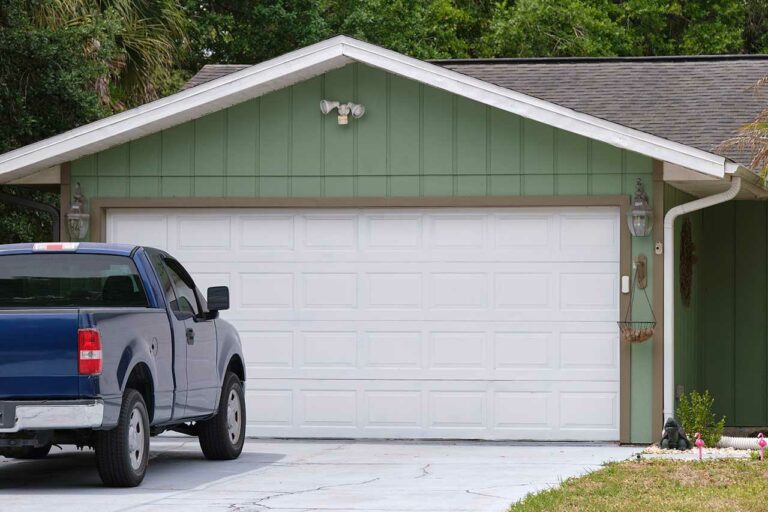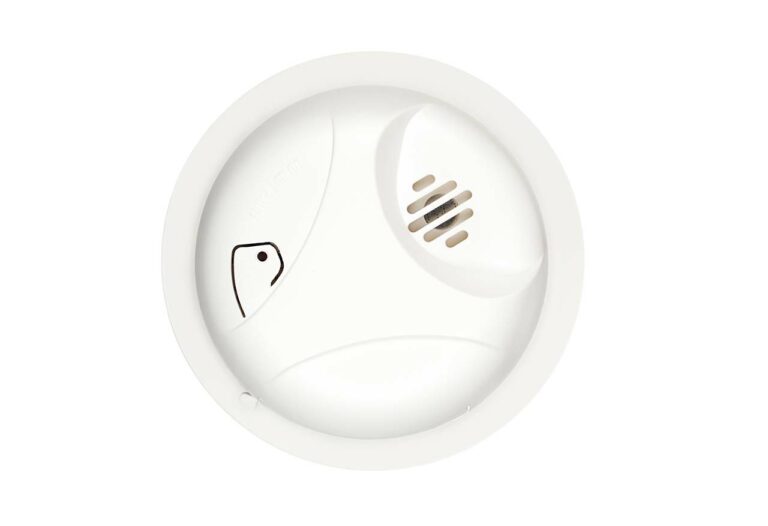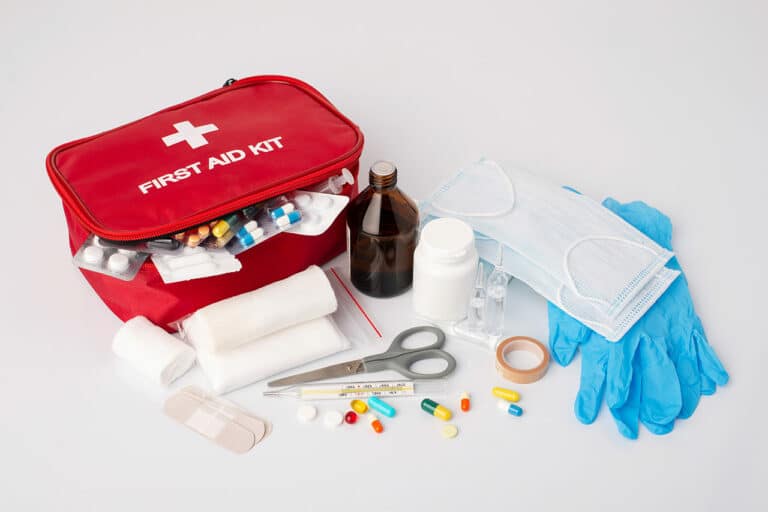Power Outage Preparedness Checklist: Expert Tips For Blackouts
Power outages can strike at any moment, leaving you in the dark and scrambling to figure out your next move. That’s where a power outage preparedness checklist comes in handy. This checklist will ensure you have all the essential items and knowledge to keep you and your family safe and comfortable during a blackout.
Planning Your Supplies & Actions
The first step in building your power outage preparedness checklist is understanding your personal electrical needs and how you’d live without them. This includes considering alternate plans for refrigerating medicines, using power-dependent medical devices, and staying warm or cool, depending on the season. Gathering a good, solid stash of power outage supplies and creating a household evacuation plan that includes your pets will help you be more prepared for any blackout, from those that are short-lived to the ones that seem to go on forever.
Taking the time to create a disaster prep kit for each member of your family can provide everyone with the necessary tools and resources to cope with a power outage. As you plan, remember to install carbon monoxide detectors with battery backup in your home, gather essential supplies like a manual can opener, and stay informed about your community’s risk and response plans. Following this checklist will allow you to tackle any power outage like a pro, regardless of the circumstances.
Building an Emergency Kit
When it comes to power outage preparedness, having a well-stocked emergency kit is absolutely essential. These are the most basic items you’ll need in your kit: Food and Water Supplies, Medical Supplies and Needs, and Lighting and Communication Tools.
Food and Water Supplies
As with any disaster, first and foremost, you need to think about how you’re going to eat. That means having enough food and water supplies to tide you over during a power outage. FEMA recommends having at least three days worth of food for everyone in your household, but that is the bare minimum. When building your foods stores, focus on the following:
- Non-perishable food: Stock up on canned goods, dry snacks, and other items that don’t require refrigeration or cooking.
- Water: Stash at least one gallon of water per person per day for drinking and sanitation purposes.
- Food storage: Keep your food supplies in a cool, dry place. Use sealed containers or plastic bags to protect them from pests and moisture.
Medical Supplies and Needs
Right up there with food and water, you need to think about everyone in your household’s specific medical needs, from vital prescription medications to electric-powered medical devices. Then, plan how those needs can still be met in the event of a power outage.
- Medical devices: If anyone in your household relies on medical equipment that requires electricity, a backup power source is not an option, it’s a necessity. A high-wattage power station or a generator should be considered a necessary medical device.
- Medications: Ensure you have a sufficient stock of prescription and over-the-counter medicines, especially if they’re essential for your health. Store refrigerated medication in coolers with ice or ice packs to maintain their efficacy during a power outage.
- First aid kit: Keep a well-stocked first aid kit readily available, including essentials like bandages, gauze, antiseptic wipes, and pain relievers.
Lighting and Communication Tools
Staying connected and well-lit during a power outage is crucial. Make sure your kit includes these essentials:
- Flashlights: Stock up on flashlights and spare batteries. It’s a good idea to keep one in every room of your house, so you don’t have to worry about navigating in the dark.
- Home phone: If you have a landline, ensure you have a non-cordless phone that doesn’t require electricity to function.
- Cell phones & chargers: Keep your cell phones charged and store portable chargers for backup power. These devices are crucial to stay informed and communicate with loved ones during a power outage.
- Candles: As an alternative light source, have a stockpile of candles on hand. Always be cautious and never leave them unattended, but candles are one of the few power sources that are not reliant on either electricity or battery power, so they should be part of your supply.
Backup Power Options
If you want to be prepared for long-term blackouts, you need an alternative power source. An alt power source will allow you to keep vital appliances, like refrigerators, electric-powered medical devices, and the lights on.
When it comes to backup power supplies, you have a couple of options.
Solar Panels
If you’ve already gone solar at home, you’re better-equipped than most for a long-term power outage.
Solar panels harness energy directly from the sun and convert it into electricity. With an appropriate storage system like batteries, the energy can be stored and used during nighttime or cloudy days. While they might not supply energy as consistently as generators, like when it’s cloudy, they are more eco-friendly than generators and aren’t reliant on fuels, which may run out in a long-term outage.
Generators
Generators have been the go-to solution for backup power for many years. They are versatile machines capable of producing electricity from various energy sources. Depending on the type and capacity, generators can power anything from a single appliance to an entire household.
Traditional fuel-powered generators run on gasoline, diesel, or propane, while newer models can utilize solar power. Their efficiency and duration of operation depend largely on their fuel source and capacity. But as long as they have fuel, they’ll run.
Power Stations
Power stations, often referred to as battery-powered generators, are essentially large batteries that can store a significant amount of electricity. While they don’t last indefinitely, they can provide power for a good amount of time, especially for essential smaller devices. They are more portable than traditional generators and can be charged using a standard electrical outlet, solar panels, or even a car battery.
For long-term outages, their capacity might be limiting.
Power Banks
Power banks are compact, portable devices designed to charge or power small electronic gadgets like smartphones, tablets, and laptops. They are incredibly handy for short-term power needs. Though not suitable for long-term power outages, they can be a lifesaver in emergency situations where you need to keep a phone or a flashlight operational.
Dealing with Potential Dangers During a Blackout
Fire Safety Measures
During a power outage, it’s crucial to be cautious about fire risks. That means always have a working smoke detector and fire extinguisher ready.
Backup light sources that don’t require an open flame, like battery-powered and solar-powered lamps, are essential for reducing fire risks.
You can also invest in safe, outdoor cooking devices, like solar cookers.
Electrocution Hazards
While it might seem odd that one of the things you must be cautious of during a power outage is electrocution, electrocution actually is a risk.
During a power outage, your greatest risk of electrocution comes from your generator. To reduce this risk, make sure cables and connectors are in good condition before plugging in your devices.
You should also never operate the generator in a wet environment or where there is standing water. Generators are most safely used in dry conditions, where connections aren’t exposed to moisture.
Communication and Community During Power Outages
Along with preparing your home and family for power outages, it’s important to know where to find information and help within your community and at large. Staying connected in a powerless world can make all the difference between weathering a power outage safely and disaster.
Neighborhood Awareness
Communication is key for safety and staying informed during a power outage. Since traffic lights can go out and grocery stores may close, sharing information and resources can be essential.
Stay up-to-date on community news sources, and check in with your neighbors. Being aware of any situation in your neighborhood can help you plan better.
Emergency Evacuation Plans
While it’s hard to think about, and no one wants it to happen, there are reasons you may need to abandon your home during a power outage, such as severe weather or flooding. That’s why it’s important to have a solid evacuation plan.
Your evacuation plan should include a designated meeting place for your family members, a list of essential items to grab, and a plan for evacuating pets. Remember to share this plan with your neighbors so they know where you are and how to reach you if needed.
It’s also a good idea to have a go-bag for each member of your family that includes things like flashlights, power banks, water, and some food items. This makes it easy for everyone in your household to pull up and go in a hurry if necessary.
Power Outage Checklist
Now that we’ve covered everything you need to think about and gather before a power outage, here’s the promised checklist:
Planning Your Supplies & Actions
- Understand personal electrical needs
- Strategies for staying warm or cool
- Install carbon monoxide detectors with battery backup
- Stay informed about community risk and response plans.
Building an Emergency Kit
Food and Water Supplies
- Non-perishable food (e.g., canned goods, dry snacks)
- Water (at least one gallon of water per person per day for drinking and sanitation)
- Food storage containers
- Manual can opener
Medical Supplies and Needs
- High-wattage power station or generator (if electricity-dependent medical equipment)
- Stock of prescription and over-the-counter medicines
- Refrigerated medication storage (coolers with ice or ice packs)
- Well-stocked first aid kit (bandages, gauze, antiseptic wipes, pain relievers)
Lighting and Communication Tools
- Flashlights and battery-powered lamps (with spare batteries)
- Non-cordless phone if you have a landline
- Cell phones & portable chargers
- Candles
Backup Power Options
- Solar panels with appropriate storage system (like batteries)
- Generators (fuel-powered or solar)
- Power stations (battery-powered generators)
- Portable power banks
- Extra batteries
Dealing with Potential Dangers During a Blackout
Fire Safety Measures
- Working smoke detector
- Fire extinguisher
- Safe, outdoor cooking devices (e.g., solar cookers)
Electrocution Hazards
- Regularly check cables and connectors for generators to make sure they are in good condition
- Store generators in a dry place that’s not prone to water retention
Communication and Community During Power Outages
Neighborhood Awareness
- Stay updated on community news sources
- Talk to neighbors about emergency plans
Emergency Evacuation Plans
- Designate meeting place for family members
- Plan for evacuating pets
- Go-bag for each family member
